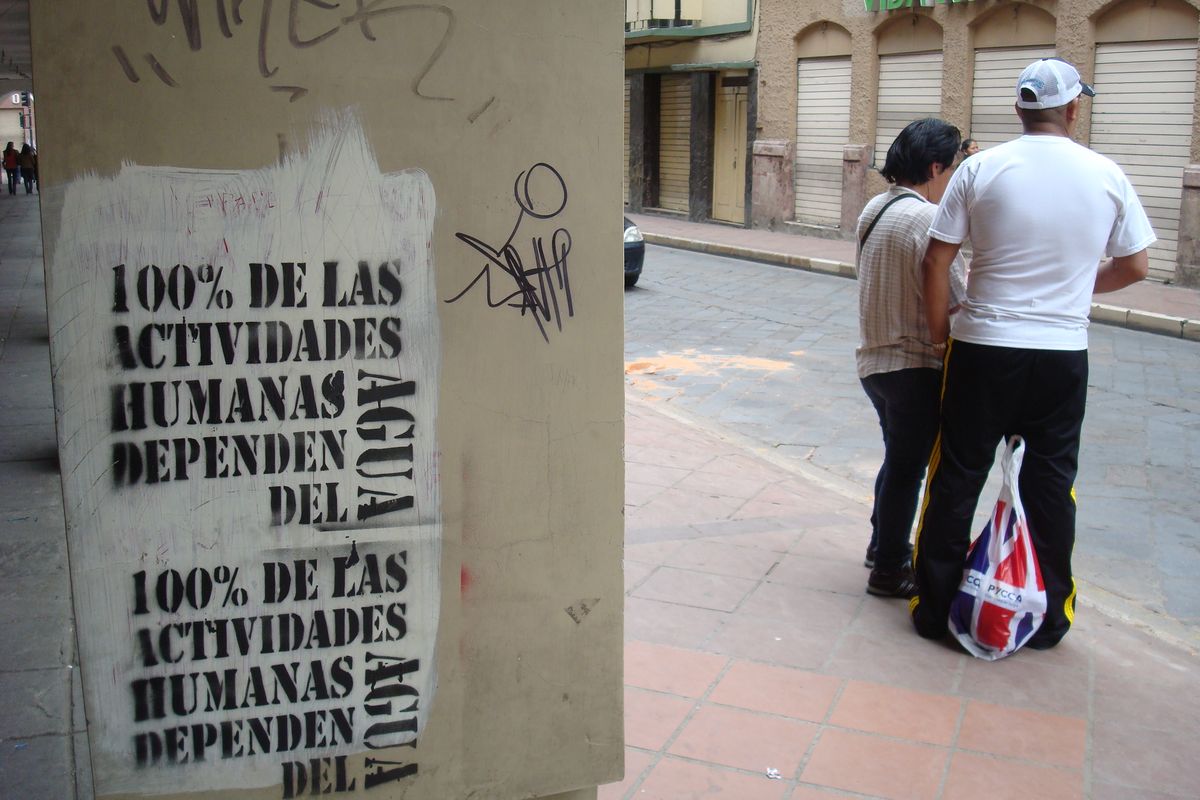On the road to sustainability
Spokane, Ecuador both trying to balance a focus on nature, progress

At first thought, you wouldn’t expect that Spokane and Ecuador, a Colorado-sized South American nation sitting on the equator, would have all that much in common. This past December, author and photographer Derrick and Shallan Knowles escaped Spokane to travel around Ecuador, where, between hammock naps, beach walks, and jungle hikes, they documented evidence of a nation grappling with balancing environmental sustainability and economic prosperity in some surprisingly familiar ways.
Spokane and Ecuador are worlds apart in many ways. But these two very different and distant places have more in common than you might think in their shared challenge of finding a path towards a more sustainable economy and way of living.
Ecuador and the U.S. both have protected parks and nature reserves and protections for clean air and water, as do many countries around the world.
Yet here in the Inland Northwest we still struggle in ways similar to Ecuador with pollution problems (look no further than the Spokane River), threats to wildlife habitat, and other environmental challenges.
Partially in response to what some activists perceive as a failure of environmental laws to live up to their intent, the small South American nation and Spokane are also both testing grounds for a recent experiment in environmental activism championed by a new brand of nature advocates.
A ‘rights of nature’ movement which was strongly supported in Ecuador calls for moving beyond legislated environmental regulation, which they see as having largely failed, to granting inalienable rights to nature—plants, animals, watersheds, and even entire ecosystems.
While Spokane’s Proposition 1 with its proposed rights for nature was narrowly defeated by less than 1,000 in the polls last fall, Ecuador approved a new constitution granting such rights to the natural world with public support in 2008.
A notable passage in the new constitution says that nature “has the right to exist, persist, maintain and regenerate its vital cycles, structure, functions and its processes in evolution.”
Over the years, Ecuador and its unrivaled ecological diversity has become a magnet for tourists and a boon for the economy. A wild mix of high Andean mountains, Amazon jungles, and even a slice of tropical Pacific coastline with miles of lightly developed beaches makes for some of the most diverse landscapes and rich habitats you can find in one small country.
The Ecuadorian Tourism Ministry boasts that it’s a “nature lover’s paradise,” and “one of 17 countries in the world classified as ‘megadiverse’ by UNESCO, with an incredible variety of birds, mammals and orchids.”
Yet both the environment and lucrative eco-tourism industry could be jeopardized by ongoing logging, mining and oil drilling proposals in pristine areas that continue to move forward in many parts of the country despite both environmental laws and constitutional rights for nature.
Trip Through Ecuador Offers Insights into Sustainability Challenge
There’s a strong argument to be made that for meaningful environmental change to take root in any country, the people of the nation must not only support legislation creating nature reserves or legal rights for nature but must also embrace and embody the values of sustainability and respect for nature in their daily lives.
How to get there can make for a lively public debate, but a trip through Ecuador by bus and on foot offered up some on-the-ground insights. We found evidence of people grappling with the conflicting desires to live in more traditional ways, closer to the land, but also to embrace the modern world and many of its products and comforts, a struggle that often reminded us of home.
Throughout Ecuador we saw banners in small towns and murals in big cities proclaiming slogans like “water is life, take care of it!” and “this place belongs to all of us…and the duty to preserve it does too.”
In a hip beach town, brightly colored bamboo recycling bins took up a prominent spot on the sand. We were encouraged to see a familiar symbol of conservation, but like many public recycling bins back in Spokane, there seemed to be confusion about the purpose of the containers given the mixed trash inside.
There is obviously a vibrant public campaign to encourage an environmental ethic in Ecuador, yet signs abound that the nation is also on an aggressive path towards development that didn’t always look so sustainable.
On a back road hike we encountered small family farms that still relied on horses for transportation a few miles away from modern highway projects.
Stumbling off a bus late one night we tripped over piles of roadside trash at the foot of a sign warning $500 fines for littering, a sight reminiscent of many U.S. highways. We passed through endless miles of new development on the outskirts of urban areas and met Americans buying up realstate along quiet stretches of relatively untrammeled coastline.
We heard and read about the ongoing threats to Ecuador’s ecologically rich slice of the Amazon basin and Yasuni National Park, where plans for developing billions in oil beneath the protected reserve are still on the table.
Ecuador is extraordinarily beautiful with many wild places, but unfortunately, one of the most biologically rich places on the Earth is still facing many of the same environmental problems as the rest of the planet.
Despite best attempts, it may be that solutions to sustainability challenges, from Spokane to Ecuador or anywhere in the world, will only ever be as strong as the will of the people to make them their own.